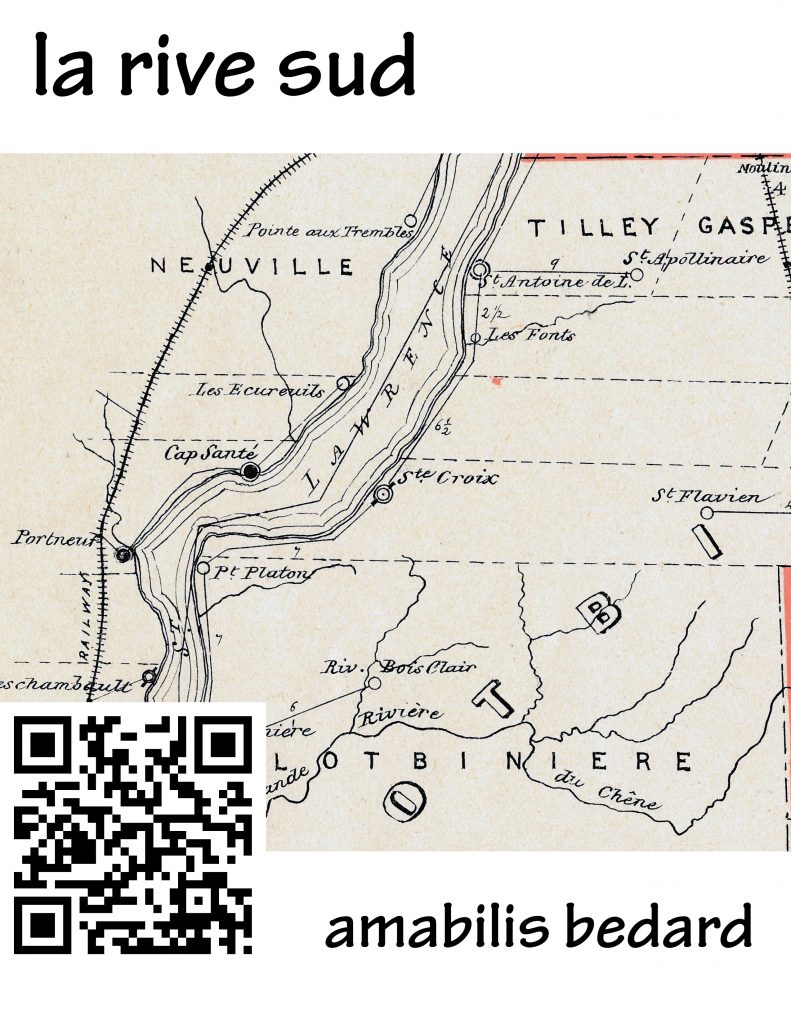
I had to admit it was a use for my underwear I’d never considered. But then I’d never had to deal with the possibility of being suffocated by dried chicken manure either.
“Go get a pair of gotch and wrap them around your head,” urged one of my partners as I gagged on another mouthful. “It’s the only way you’re going to make it through the afternoon.”
An hour earlier I had gotten a good laugh watching a couple of the veterans pull a pair of white briefs over their face. But now the idea didn’t seem so ridiculous.
Shoveling out the chicken barn was about the worst job you ever had to do at the school. Long after your sense of smell had surrendered to the nauseous odour your nose, mouth, eyes, and ears had to deal with the cloud of powdered excrement that hung in the air.
The masters seemed to take particular pleasure when the time came to pick the crew to shovel out the barn. You’d almost think the school had decided to raise animals because of that chore alone. It was certainly a duty that led to much discussion within the student body – inspiring some members to record the ordeal in verse and song.
The farm program was begun soon after St. John’s took up residence on the Dynevor property in April of 1961. It was an obvious decision since behind the school stood a very serviceable two-story barn. Not many years earlier it had housed the animals that fed the patients in the Indian hospital.
A committee of local farmers was organized and a plan of action was drawn up. Supporters would be encouraged to donate calves, chicks, and piglets which could then be raised by the boys and slaughtered for use in the kitchen. The main expense would be feed.
A year later, when St. John’s became a full-time operation, the school had acquired a flock of roasting chickens, a few dozen laying hens, two Hereford steers, an Angus steer, a few pigs, a goat named Nanny, a sway-backed nag named Bonny and a big gelding called Thunder. They were all comfortably housed in the barn.
One of the first things I witnessed at the school was the arrival of four diarrhea-splattered Holstein calves in the back seat of a Mercedes Benz. Within a month a dozen more calves had been chauffeured to the school the same way. I don’t remember ever seeing a human sitting back there.
The arrival of the calves spelled bad news for the barn’s other tenants. One by one they were given the boot: the roasting birds to the butcher; the pigs to an outdoor sty; the hens to a shed and the horses, steers, and goats were left in a corral outside.
There was no question which members of the farm community now occupied the highest rung on the social ladder. The calves were pampered from dawn to dusk, slurping down hundreds of gallons of Big Momma milk replacer, at first on the ends of someone’s fingers and then by themselves. No effort was spared to ensure their comfort.
Then the results of the school’s first chicken sale were announced – a profit of $1,100. It didn’t happen right away, but the privileged status of Holsteins was definitely in jeopardy.
The following Spring, they joined the other animals in the outdoor corrals and the barn was renovated to accommodate three floors of roasting chickens.
Perhaps out of spite for being demoted, the Holsteins had gone from being cuddly pets to uncontrollable menaces which respected no fence and only lived to see their second birthday because they would fetch more at the auctions.
That October the first 2,000-bird flock was shipped to the processors. That meant there would now be a major barn cleaning bee. The big question was who would be among the unlucky few chosen.
“I’m looking for volunteers for a task of vital importance to the future of the school,” Mr. Byfield declared in a tone too light-hearted to be serious.
We’d just finished lunch and the smell of boiled wieners and steamed sauerkraut hung in the air. Sunshine streamed through the windows that lined one side of the dining room. As usual Mr. Byfield was pacing the floor.
If his tone hadn’t been enough to tip us off his choice of words definitely was. At St. John’s there was no such thing as a volunteer. So, we immediately knew he was attempting to soften us up for something unpleasant.
When it came to irony, he was a master practitioner. He no doubt hoped that making his ‘volunteers’ sound like some kind of elite it would make the assignment more palatable. It never did but that never stopped him from trying.
“I want men of great character and strong backs,” he continued. “Men, who in the face of adversity, will not shrink.”
At this point, even he was wearing a smirk. The words shit shoveling were written all over his face. We wished he’d just spare us the suspense.
“Next week a new batch of chicks is arriving, and that means the barn must be made ready. A number of you have been involved in these preparations before. Is that not correct de Candole?” he said, somehow catching my eye in the crowd.
“I don’t think so, sir,” I replied.
“Well then, this is your chance,” he said with a grin. “No special training is necessary. Carson and Churchill will be happy to give you a quick lesson on the use of the equipment.”
Tom Carson and Kevin Churchill were the two barn crew leaders. It was their responsibility to see that these preparations were completed in time. Without further embellishment, Mr. Byfield called out the names of the boys to fill two crews and sent us on our way. Our job was to shovel out the top two floors of the barn by supper time.
Though liquid when deposited, chicken poop seems to lose its moisture very quickly. While the top layer is usually crusted and difficult to loosen, once removed the pitchfork passes through the remaining layers of powdered manure without so much as disturbing a single stalk of straw. A shovel worked only marginally better. Either way, you wondered if more wasn’t finding its way into your lungs than out the door.
Because of its infuriatingly unforkable consistency progress was slow. Within a matter of minutes the air became saturated with dust making it almost as hard to see as breathe in the light provided by a few naked bulbs.
I noticed right away that those with the unorthodox headgear seemed less bothered. The rest of us coughed, wheezed, and grew increasingly irritable in the cramped, stuffy chicken loft.
I soon decided to follow my fellow shoveler’s advice for improvising a mask. For one thing, it meant I could get out into the fresh air for a few minutes. Carson and Churchill had no objections, particularly if it meant I would work harder.
The beauty of using underwear was that its elastic waistband more or less kept the garment snug around your head. Peering out through the leg holes was awkward, but manageable. Your feet usually told you where the edge of the pile was.
By mid-afternoon, that pile was still barely halfway across the floor. Collisions between neighboring forks and shovels were less frequent, however, and we were beginning to work as a team. Occasionally someone would hurl something resembling a clump out through the open door at the far end. The dust was now bothering me less.
With an hour to go before supper, the prospects for finishing did not look good. But then Carson came in and made the threat we feared most.
“If you don’t finish before supper you’ll be out here again tonight,” he warned matter-of-factly. That meant we’d miss the Saturday night movie, the highlight of the school week. No one was prepared to give that up.
“Let’s get going,” someone yelled.
Several boys unleashed a flurry of forkfuls, some of which found their way out the door and onto the ground below. The rest of us soon followed suit, and the pile moved perceptively closer to the door.
With half an hour to go, we had to spell each other off, so congested was the area around the door. Most of us had taken off the masks, our faces, hair, and hands now caked with a brown sooty substance.
We hadn’t finished by the time the supper bell rang but we didn’t miss the movie either. Carson arranged for food to be set aside so we could finish and take a shower.
My letter home that week was short on details but it was nonetheless revealing:
'Yesterday I spent the whole afternoon shoveling maneur (sic) out of the 3rd floor of the barn where the chickens were. Boy! What a job.'
Richard de Candole has been working in British Columbia and Alberta as a reporter and editor for over 40 years. Toughest School in North America is about his five years as a student at St. John’s Cathedral Boys’ School in Selkirk, Manitoba from 1962 to 1968. Richard lives with his wife Wendy in Qualicum Beach, British Columbia.
bedard.com is serializing Toughest School in North America for your reading pleasure. I hope you enjoy it as much as I do. If you’d like to preorder a copy of the book, leave a reply below. All replies are moderated.






Having been chicken crew chief in ‘78-79, I’d relish ordering a copy of the book.
We are preflighting Richard’s book by serializing it first on bedard.com to work out some of the kinks. We’ll let everyone know as soon as it’s available for order or preorder on Amazon.
Chicken manure, when dry, has a high Ammonia content…..while dust is nuisance, ammonia attacks the respiratory system.